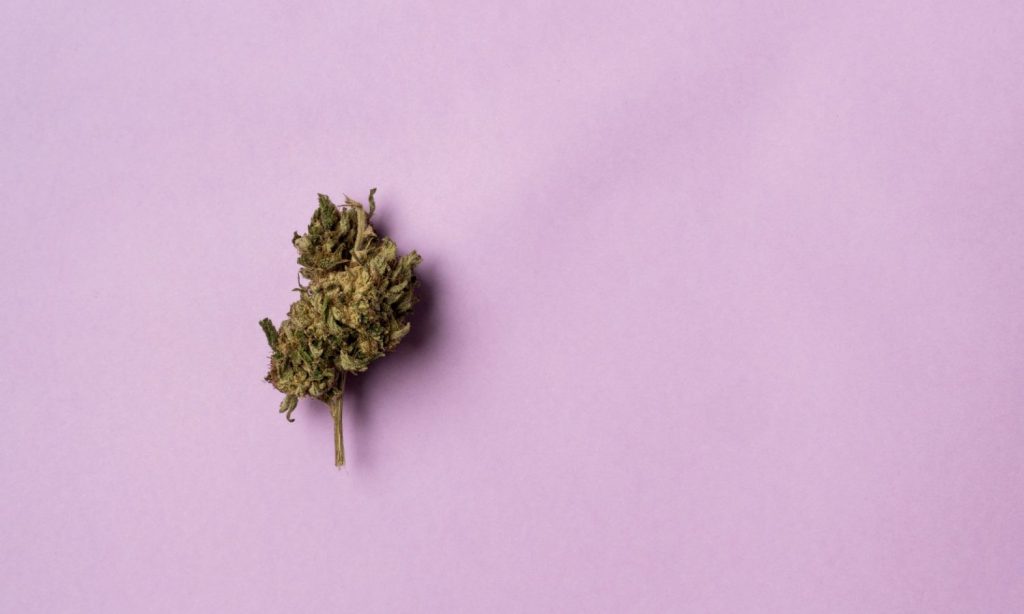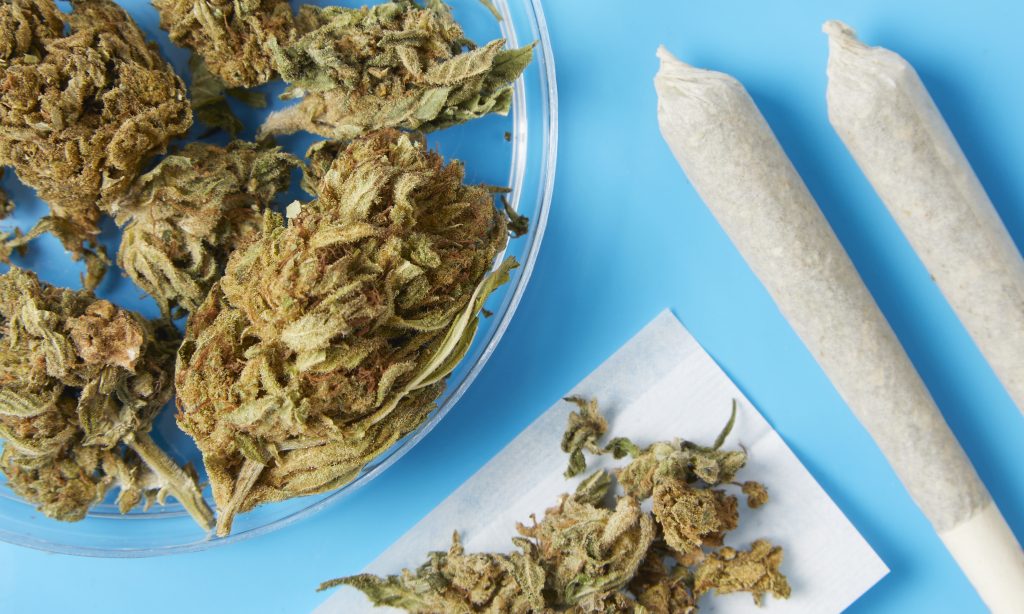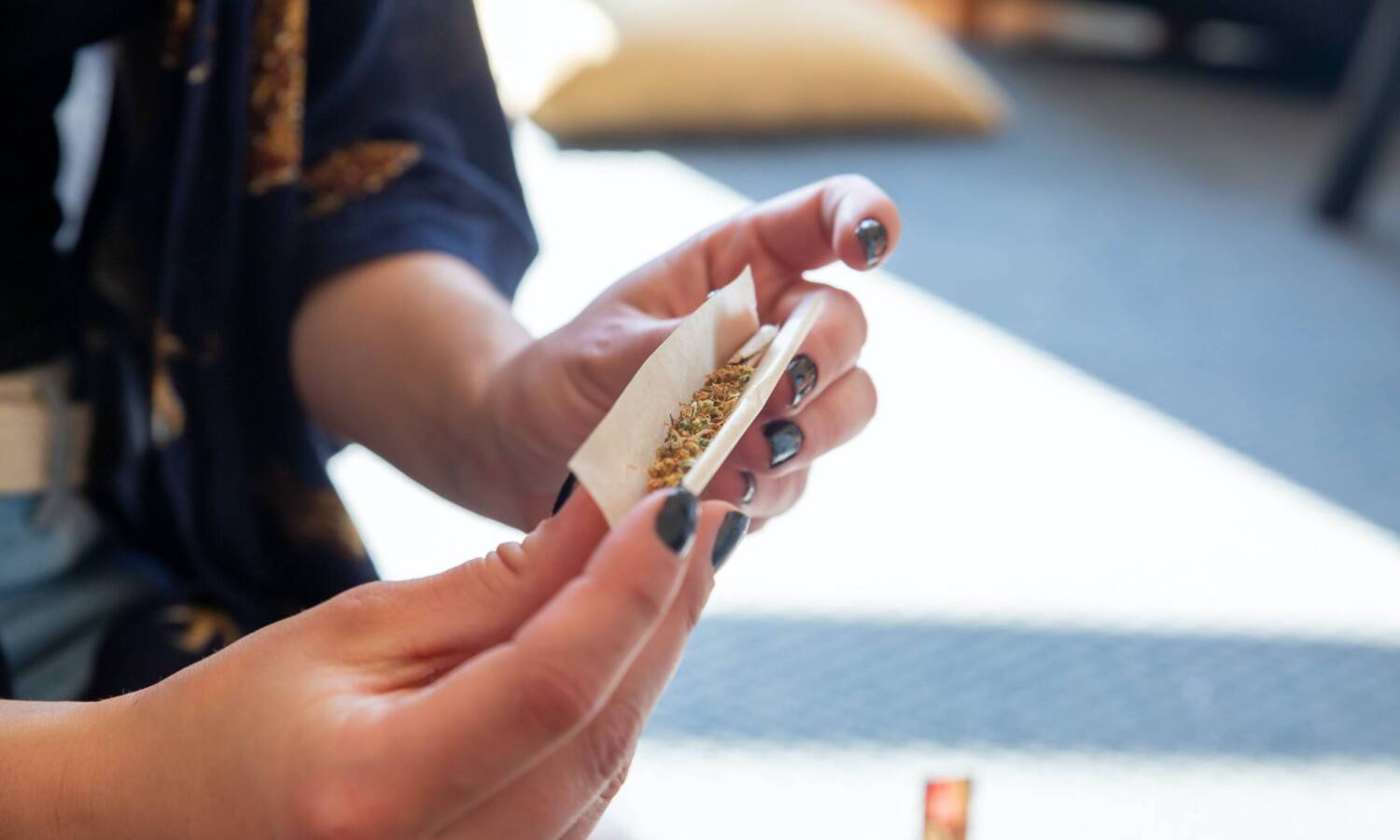The increasing popularity of delta-8 (and all cannabinoids) seems to be slowly clearing a path toward legitimacy.
The future of the cannabis industry is a labyrinth of elaborate rules and regulations, of types and categorization. All of the twists and turns can make this topic difficult to navigate, even for the interested layperson. In this article, we’ll be specifically addressing the trajectory of delta-8 cannabis product legality in the United States.
We’ll begin with a rundown of delta-8, and just what it does in the body. We’ll then examine issues with delta-8 sales and finish with a glimpse forward at the cannabis industry in terms of delta-8 products. We’ll also share some insights from industry experts and specialists.

What Is Delta-8?
Before we get into the sales of delta-8, let’s discuss just what it is. Cannabis is made up of over a hundred cannabinoids, of which THC is one. However, just as there are multiple cannabinoids, neither does THC doesn’t come in just one form.
When we think of THC, we are generally thinking of what is called delta-9–the psychoactive compound that creates a high effect. Delta-8 is an analogue of the more well-known delta-9, which means it has a similar molecule structureб but the arrangement of the atomic bonds are not the same.
What does this mean? Well, delta-8 is less potent in psychoactive properties… its high is milder, and paranoia or anxiety are less common side effects than in delta-9. However, it retains the same potential health benefits as its more potent relative, including (1):
- Decreased pain and inflammation
- Sleep enhancement
- Mood stabilization
- Neuroprotective properties
- Improved appetite
Delta-8 can be found in the same products as delta-9 THC, like tinctures, vapes, joints, capsules, and edibles. Due to the decreased psychoactive effect on the brain, delta-8 has been called “cannabis light” or “diet weed” by the press.
Delta-8 THC is created by converting CBD derived from hemp into delta-9, then into delta-8 (it is almost exclusively derived from hemp rather than cannabis). This is where we get into some of the strange legal tangles of delta-8 THC.

Problems with Delta-8 Sales in the United States
While delta-8 is technically legal on the United States federal level due to the Farm Bill (2) of 2018, the reality is far more complicated. Delta-9 is specifically named an illegal substance and is banned on the federal level (although states may regulate these substances as they wish in their own jurisdiction).
Delta-8 is not named, and so there is some grey area within manufacturing methods to create questions of its legality. However, its legal status is also regulated by each individual state.
RELATED: How To Know If Delta-8 THC Is Right For You
Because synthetic extraction of THC is illegal, some states consider the chemical processes that convert delta-9 into delta-8 suspect under this law. (3) While the process is not precisely “synthetic extraction”, the states are allowed their own interpretation of the wording. Certain states have specifically banned the use of delta-8 products, though it’s not illegal on a federal level. States that have declared delta-8 illegal include:
- Alaska
- Arizona
- Arkansas
- Colorado
- Delaware
- Idaho
- Iowa
- Kentucky
- Mississippi
- Montana
- New York
- Rhode Island
- Vermont
- Utah
On the other hand, there are currently 29 states that have outright legalized delta-8 for recreational use. These are states that have legalized not only delta-9 THC, but also a wide range of other hemp compounds such as cannabinoids, isomers, and salts of isomers. They have also removed hemp-derived THC from the controlled substances list on a state level.
Even in states with legalized delta-8 THC, there can be some hiccups in the quality and availability of these products due to other state laws impacting the hemp industry. This includes things like possession laws, seller laws, licensing and manufacturing laws, and the most commonly used law to restrict hemp: formula restrictions.
RELATED: FDA Will Use Reddit To Learn About Cannabis-Derived Products Including CBD & Delta-8
Formula restrictions essentially mean that while delta-8 may be classed as legal in certain states, it can also be considered an adulterant. This means that by law, it cannot be added to consumables such as drinks, food, or dietary supplements. While this type of law does not affect individuals on a possession level, it can affect manufacturers and sellers.
All of this interconnected web of unclear or circuitous law-making can leave the legality of THC 8 shaky. Unless you live in a state where there is a clearly stated law allowing for the manufacture, sale, and possession of delta-8 THC, supply can be spotty or difficult–even with states where consumers may legally purchase it.

What Will the Future Bring for U.S. Delta-8 Sales?
So what’s next for delta-8 sales in the United States? While no one knows for sure, it’s safe to assume that many previous opponents of THC can see the soaring profits that are available through sales of this increasingly popular cannabinoid. However, with increased legality comes increased responsibility.
The CEO of Canna Redux and Forge Hemp Company, Russell Lombard states, “My hope for the future is that regulators step in and manage delta-8 responsibly, considering that it is not just a product for people to get high. Delta-8 is a therapeutic cannabinoid that helps people with anxiety, depression, and pain management.”
RELATED: FDA Warns Consumers Of Risks Associated With Delta-8 THC Products
As with CBD and delta-9 products, there needs to be a good deal of transparency in manufacturing processes, third-party lab testing, and clear consumer labeling that includes warnings for children.
As a country, the United States is moving more toward legalization than away from it. Federal law is unlikely to ban delta-8, with even the DEA confirming that it is considered legal on a federal level. During a town hall conducted in Florida over the legality of hemp and cannabis products, when asked about the legal status of delta-8 THC DEA representative Sean Mitchell reiterates:
“Per the farm bill, the only thing that is a controlled substance is delta-9 THC greater than 0.3% on a dry weight basis.”
RELATED: R.I.P. Delta-8 THC: Why States And DEA Want It Banned
Out of all the states, only 14 have explicitly banned delta-8. In 5 states, the legality is not clear, while in Connecticut and Michigan, it is regulated in the same way as recreational cannabis. While the laws are often contradictory, unequally enforced, or confusing, the federal precedent makes the path clearer toward eventual state legalization. However, the process will likely be smoother in some states than others.
Only by legalizing delta-8, is the safety of consumers truly taken into serious account. This action will raise both the quality and the safety standards for delta-8 products, as they are brought under the scrutiny of regulatory bodies.
Final Thoughts
Though perhaps cynical, the bottom line for most experts seems to be “follow the money”. The increasing popularity of delta-8 (and, in fact, all cannabinoids) seems to be slowly clearing a path toward legitimacy.
We predict that outright bans will begin to transition into greater regulation over products. More concern over consumer safety, laws that oversee the manufacturing process, and other similar kinds of scrutiny will become more common as public opinion continues to shift toward legal use. In the meantime, the shifting sands of so many delta-8 THC laws must be navigated carefully in banned or grey area states.
This article originally appeared on Benzinga and has been reposted with permission.


